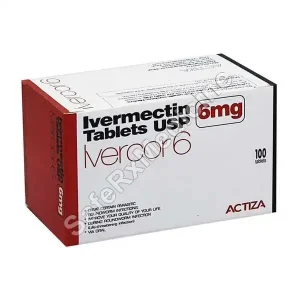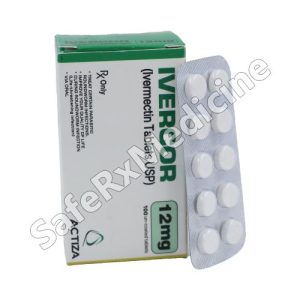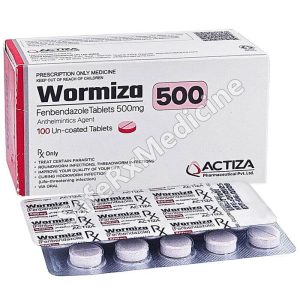
In recent years, ivermectin fenbendazole has gained significant attention for its potential therapeutic benefits beyond traditional uses. Both ivermectin and fenbendazole are well-known antiparasitic drugs, but emerging research suggests they may have broader applications in human health. This blog explores the uses, mechanisms, benefits, and safety of ivermectin fenbendazole, providing a detailed overview for those interested in alternative treatments.
What Are Ivermectin and Fenbendazole?
Ivermectin
Ivermectin is an FDA-approved antiparasitic medication primarily used to treat infections caused by roundworms, lice, and mites. It works by paralyzing and killing parasites, making it highly effective against conditions like river blindness and scabies. Recently, ivermectin has been studied for its antiviral and anti-inflammatory properties.
Fenbendazole
Fenbendazole is a broad-spectrum anthelmintic (dewormer) commonly used in veterinary medicine to treat intestinal parasites in animals. However, anecdotal reports and preliminary research suggest that fenbendazole may have anticancer properties, leading to increased interest in its potential human applications.
When combined, ivermectin fenbendazole may offer synergistic effects, particularly in immune modulation and disease resistance.
Save up to 90% on your medicine bills
-
Wormiza 150 Mg (Fenbendazole)
Just $0.14 /Piece -
Wormiza 500 mg (Fenbendazole)
Just $0.35 /Piece
Mechanisms of Action: How Do Ivermectin and Fenbendazole Work?
Ivermectin’s Mechanism
- Parasite Paralysis: Binds to glutamate-gated chloride channels in parasites, causing paralysis and death.
- Antiviral Effects: Inhibits viral replication by blocking nuclear transport proteins.
- Anti-Inflammatory: Reduces cytokine storms by modulating immune responses.
Fenbendazole’s Mechanism
- Disrupts Parasite Metabolism: Inhibits microtubule formation, preventing nutrient absorption in parasites.
- Potential Anticancer Effects: May starve cancer cells by disrupting glucose metabolism (Warburg effect).
The combination of ivermectin fenbendazole could enhance these effects, particularly in immune support and metabolic regulation.
Potential Benefits of Ivermectin Fenbendazole
1. Antiparasitic Applications
Both drugs are highly effective against parasitic infections. Ivermectin is widely used for human parasitic diseases, while fenbendazole is a potent dewormer in animals. Some practitioners use ivermectin fenbendazole together for stubborn parasitic infections.
2. Antiviral Properties
Ivermectin has shown promise against viruses like SARS-CoV-2, dengue, and Zika in lab studies. While more clinical trials are needed, its ability to inhibit viral proteins makes it a subject of ongoing research.
3. Cancer Support
Some studies suggest fenbendazole may slow tumor growth by disrupting cancer cell energy production. Combined with ivermectin, which has demonstrated anticancer effects in preclinical studies, ivermectin fenbendazole is being explored as a complementary therapy.
4. Immune System Modulation
Both drugs may help regulate immune responses, reducing excessive inflammation linked to autoimmune conditions and chronic infections.
5. Anti-Inflammatory Effects
Ivermectin has been shown to reduce inflammatory markers, which could benefit conditions like arthritis and chronic inflammatory diseases.
Safety and Side Effects of Ivermectin Fenbendazole
Ivermectin Safety
- Generally safe at prescribed doses.
- High doses may cause dizziness, nausea, or liver toxicity.
- Not recommended for pregnant women or those with liver disease without medical supervision.
Fenbendazole Safety
- Veterinary-grade fenbendazole is not FDA-approved for humans.
- Some users report mild side effects like fatigue or digestive discomfort.
- Long-term human safety data is limited.
Combination Risks
Using ivermectin fenbendazole together should be done under medical guidance to avoid potential drug interactions or toxicity.
Dosage and Administration
Ivermectin Dosage
- Parasitic Infections: 0.2 mg/kg body weight (single dose).
- Off-Label Uses: Varies based on condition (consult a healthcare provider).
Fenbendazole Dosage
- Human Use (Unofficial): Typically 222 mg per day for 3 days, followed by a break.
- Veterinary Use: Follow label instructions for animals.
Important: Always consult a doctor before using ivermectin fenbendazole, especially in combination.
Controversies and Misconceptions
Ivermectin and COVID-19
While some studies suggest ivermectin may help with COVID-19, major health organizations (WHO, FDA) do not recommend it due to insufficient evidence.
Fenbendazole for Cancer
Anecdotal success stories exist, but no large-scale clinical trials confirm fenbendazole as a cancer treatment. Patients should not replace conventional therapies without medical advice.
Conclusion
Ivermectin fenbendazole presents intriguing possibilities beyond their traditional antiparasitic uses. While research is still evolving, their potential antiviral, anticancer, and immune-modulating effects make them a subject of great interest. However, self-medication carries risks, and professional guidance is essential.
If you’re considering ivermectin fenbendazole, consult a healthcare provider to ensure safe and appropriate use. Stay informed, follow scientific developments, and prioritize evidence-based treatments.
Final Thoughts
The exploration of ivermectin fenbendazole highlights the importance of repurposing existing drugs for new therapeutic roles. While promising, responsible use and further research are key to unlocking their full potential.
By understanding the benefits and limitations of ivermectin fenbendazole, individuals can make informed decisions about their health and wellness.
Comments (2)
Terry Martin
November 1, 2025My wife has recently finished her treatment for TNBC & I was just diagnosed with skin cancer. Aside from taking part in the treatment that will be recommended for me. We would both like to have the ability to take the combination of Ivermectin and Fenbendazole since we feel that it would increase our chances of getting & remaining cancer free.






FloraLee Rauch
January 4, 2026Would the combination of Ivermectin & Fenbendazole help decrease artery blockage thus lowering my too high blood pressure?